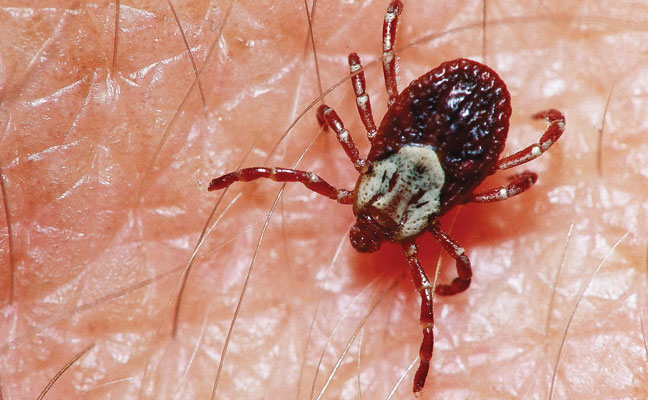
Photo courtesy of, and copyrighted by, Gene White, pmimages@earthlink.net
After a few months of reduced pest pressure, firms are preparing for the deluge of spring service calls that warm weather brings. But over the past few years, many pest management professionals (PMPs) have been offering a relatively new service to their customers: tick management. If this is a service you are considering, educate your customers about what tick treatment entails — and what to expect as a result.
Your customers may envision a broadcast spray of the entire yard, but treatment isn’t that simple. Focus on areas where ticks are most commonly encountered, known as ecotones. Ecotones, or transitional areas between woods and field, or brushy areas and lawns, are the most likely place for ticks to thrive. Close-cropped grass in the middle of the yard doesn’t support tick populations the way more natural areas do. The reason for tick activity in these areas is two-fold:
- The hosts for the most common ticks are more likely to be found in natural areas, and the edges are great places for questing ticks to latch onto a passing animal.
- Sunny, open lawns don’t provide the humidity most ticks need to develop and thrive the way shady edges do. Therefore, the entire yard typically doesn’t need a treatment; just treat the tick zones.
Painting an accurate picture of what a client should expect after the treatment also is an important part of managing client expectations. Don’t tell customers they will never see a tick on themselves or their pets. Instead, talk about how your service is only designed to reduce the number of questing ticks on their property. It can’t stop animals from bringing new ticks onto the property after the treatment. There’s no way to stop your client from visiting the park, walking the dog through the neighborhood, or participating in other activities in which they might encounter ticks. And of course, never, ever make claims about tick-borne disease transmission.
By giving your customers the facts about what to expect regarding ticks, they can focus on enjoying their backyards during the spring and summer months, instead of calling you for a callback.
Read more: Flea and tick control advised for all rodent work
Leave A Comment